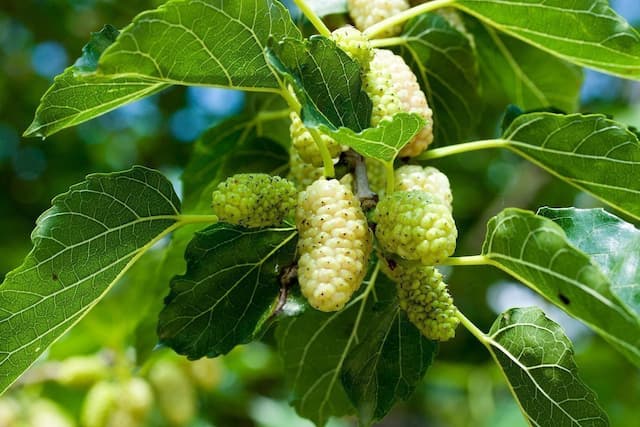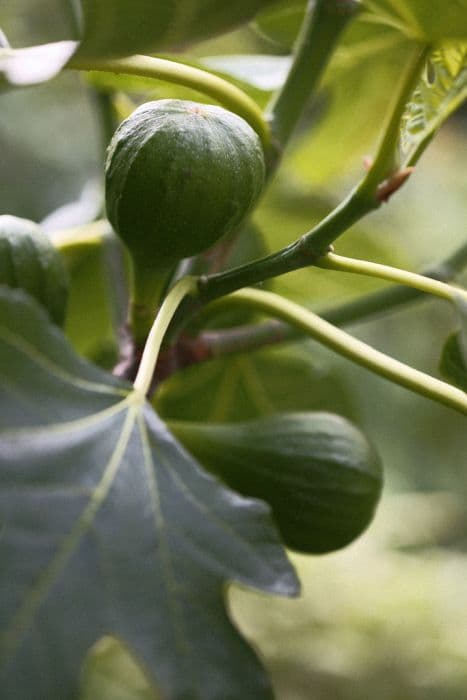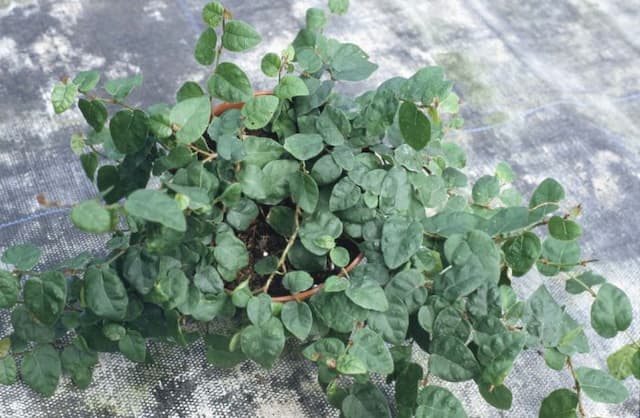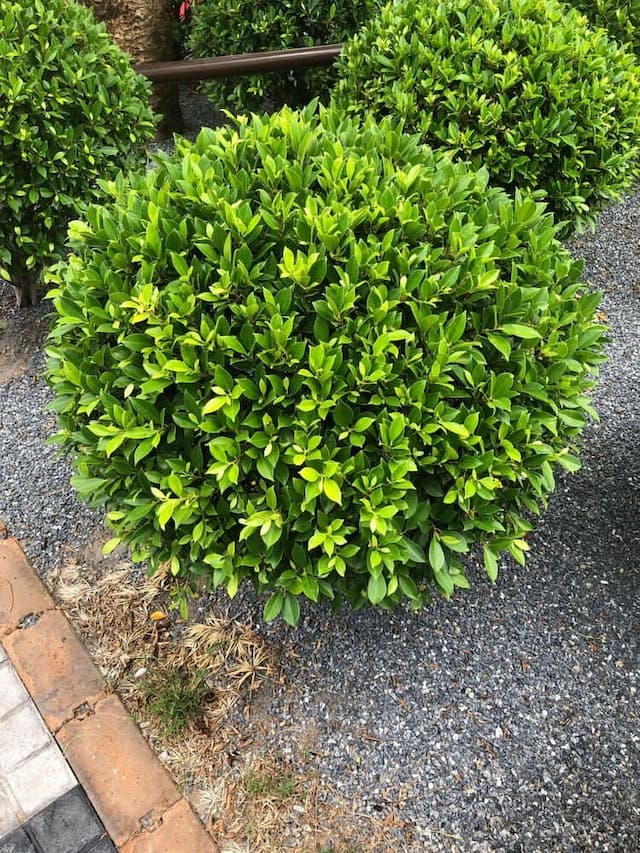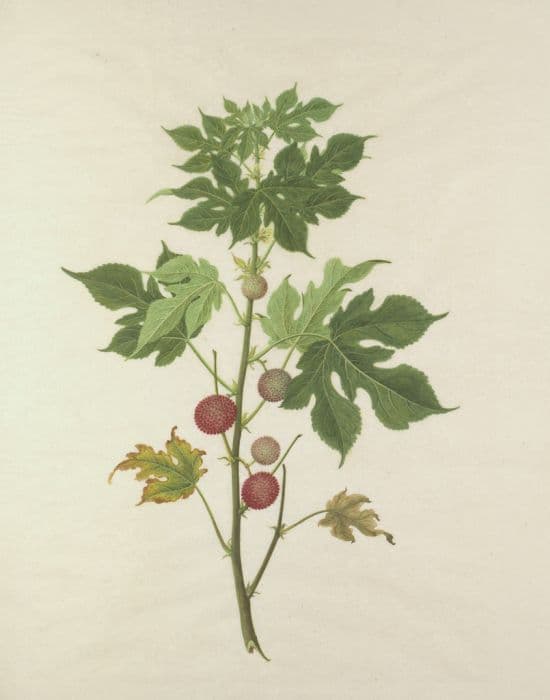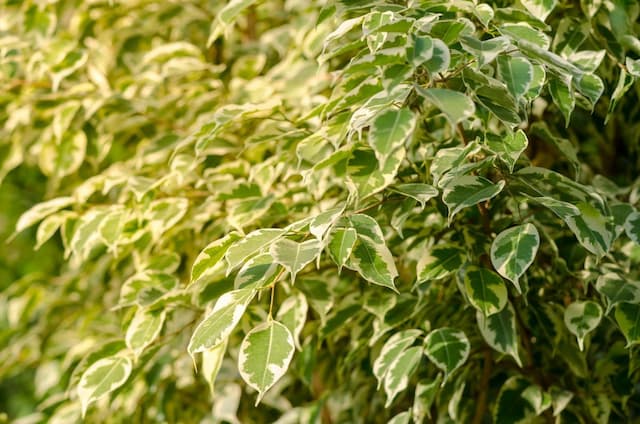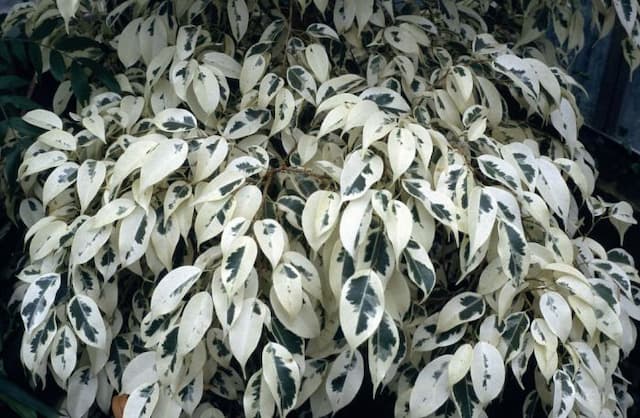Alii Ficus Ficus binnendijkii
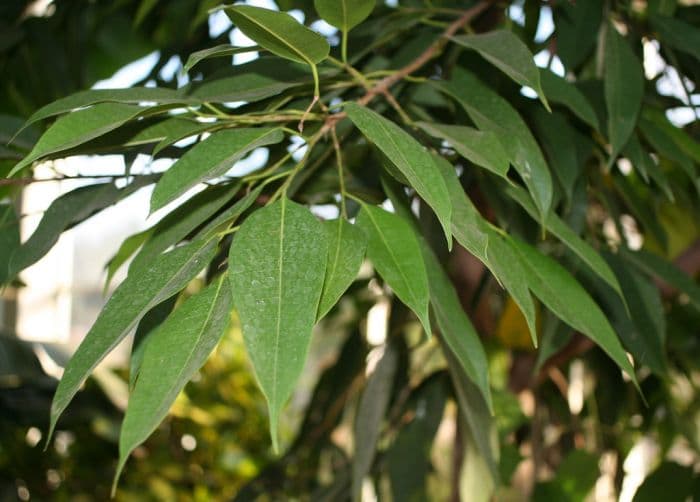
ABOUT
The Ficus binnendijkii, commonly known as the 'Alii' ficus or the narrow-leaf ficus, is recognized for its long, slender leaves which give it a graceful, willow-like appearance. These leaves are typically a rich green color, conveying a luscious vibrancy. Each leaf is glossy, adding a touch of elegance to the plant's overall look, and they taper to a pointy end. The 'Alii' ficus has a habit of growth that produces dense foliage, creating an attractive, robust canopy that can serve as an eye-catching feature in any space it occupies. Its leaves are quite slender, and they can grow several inches in length, contributing to the plant's graceful and sophisticated appearance. Additionally, the plant may develop aerial roots that hang down from the trunk and branches, which in the wild would help secure it to other trees or structures. The color of its wood can be a light gray to a grayish-brown, which provides a nice contrast against the dark green of the leaves. In the right conditions, this ficus variety can sport small fig-like fruits, although this is quite rare when grown indoors. Despite the lack of detailing on its size, this plant can possess a tree-like form and adapt well to indoor environments, bringing a touch of the tropics into a home or office setting.
About this plant
 Names
NamesFamily
Moraceae
Synonyms
Alii Fig, Banana-Leaf Fig, Slim-Leaf Fig
Common names
Ficus binnendijkii, Ficus binnendykii, Ficus notobor Buch.-Ham., Ficus elliptica Elmer, Ficus kerkhovenii Valeton, Ficus sumatrana Miq.
 Toxicity
ToxicityTo humans
The Alii Fig or Ficus maclellandii 'Alii', commonly known as Ficus binnendijkii, is not considered highly toxic to humans if ingested. However, it can cause gastrointestinal discomfort or irritation of the mouth and stomach if its leaves or stems are chewed or swallowed. This irritation is due to the presence of sap containing compounds such as proteolytic enzymes and psoralens. While severe poisoning is unlikely, it is recommended to keep the plant out of reach of children who might chew on its parts.
To pets
The Alii Fig is considered toxic to pets such as cats and dogs. Ingestion of the plant can lead to oral irritation, excessive drooling, and vomiting. The sap of the plant contains irritating substances that can be harmful if ingested. If a pet consumes a significant portion of the plant, or if any symptoms of poisoning appear after ingestion, it is advisable to contact a veterinarian.
 Characteristics
CharacteristicsLife cycle
Perennials
Foliage type
Evergreen
Color of leaves
Green
Height
6 feet [1.83 meters]
Spread
3 feet [0.91 meters]
Plant type
Tree
Hardiness zones
11
Native area
Southeast Asia
Benefits
 General Benefits
General Benefits- Enhances Aesthetics: Ficus binnendijkii, commonly known as 'Alii' fig or narrow-leaf fig, is a visually appealing plant with long, slender leaves that bring a tropical and elegant feel to any interior space.
- Easy to Care for: 'Alii' fig is relatively low maintenance, making it a great choice for those new to gardening or those who do not have a lot of time to care for plants.
- Improves Humidity: By transpiring water through its leaves, the 'Alii' fig can help maintain a beneficial level of humidity in the environment, which can be advantageous for respiratory health.
- Adaptable to Indoor Light Conditions: 'Alii' fig can adapt to a variety of indoor lighting conditions, from bright, indirect light to lower light levels, making it a versatile addition to any room.
- Can Be Used in Feng Shui: The 'Alii' fig is often used in feng shui practices to enhance the flow of positive energy in a space and to bring in elements of nature, balance, and growth.
 Medical Properties
Medical PropertiesThis plant is not used for medical purposes.
 Air-purifying Qualities
Air-purifying QualitiesThis plant is not specifically known for air purifying qualities.
 Other Uses
Other Uses- Background for aquariums: The lush foliage of Alii Fig can provide a natural-looking backdrop for aquariums when planted behind them.
- Botanical art subjects: Due to their elegant appearance, leaves and branches can be used as subjects for botanical drawings and photography.
- Noise reduction: When used in interior spaces, larger plants can help absorb sound, reducing noise levels.
- Feng Shui practices: Often incorporated in Feng Shui to add a sense of calm and to balance the energy in a room.
- Sculptural displays: Trained into various shapes, their branches and leaves can create living sculptures for garden displays or interior design pieces.
- Privacy screens: In larger spaces or outdoor gardens, these plants can be grown as natural privacy barriers.
- Costuming and props: Crafters and designers might use the leaves for creating nature-inspired costumes or as props in theatrical productions.
- Education and demonstrations: Used to teach principles of pruning or indoor plant care in horticulture classes.
- Planted gifts: They are often potted and given as gifts for housewarmings, office openings, or as eco-friendly gestures.
- Holiday décor: With the right decorations, the Alii Fig can serve as a living holiday tree that can be utilized year after year.
Interesting Facts
 Feng Shui
Feng ShuiThe use of the "Alii Fig" in Feng Shui is to enhance the flow of chi and bring positive energy into a space. It is especially useful in areas where Wood element is needed to balance the five elements, such as the east for health or the southeast for wealth and abundance. By positioning the Alii Fig in these areas, one can strengthen their connection to these aspects of life according to Feng Shui principles.
 Zodiac Sign Compitability
Zodiac Sign CompitabilityThe Alii Fig is not used in astrology practice.
 Plant Symbolism
Plant Symbolism- Growth and Stability: Like many ficus plants, the Ficus binnendijkii, commonly known as 'Alii Fig,' often symbolizes growth and stability due to its strong root system and long-lasting nature.
- Peace and Calm: The lush green foliage and the way it can bring a sense of tranquility into a space make the Alii Fig represent peace and calmness, making it a popular choice for homes and offices.
- Endurance and Resilience: The plant is quite adaptable and can endure less than ideal conditions, so it's often associated with perseverance and the ability to withstand tough circumstances.
 Water
WaterThe Ficus Alii should be watered thoroughly until water runs out of the drainage holes, approximately every 1-2 weeks. Allow the top inch of soil to dry out before watering again to prevent overwatering. Water with approximately half a gallon for a medium-sized pot, adjusting the amount depending on the size of the plant and the pot. During the winter months, reduce the watering frequency as plant growth slows down.
 Light
LightThe Ficus Alii thrives in bright, indirect sunlight, making it ideal to place near a window that receives ample light but is shielded from direct sun. An east or west-facing window is often perfect. Direct sunlight can scorch the leaves, while too little light can cause leaf drop and poor growth.
 Temperature
TemperatureThe Ficus Alii prefers a warm climate with temperatures ranging between 60 to 75 degrees Fahrenheit. It can tolerate a minimum of 50 degrees Fahrenheit but should be protected from drafts and sudden temperature changes. The ideal temperature range encourages healthy growth and leaf development.
 Pruning
PruningPrune the Ficus Alii to maintain its shape and encourage fuller growth. Pruning is best done in the spring or early summer when the plant is actively growing. Remove any dead or yellowing leaves as they appear and trim back any unwanted or leggy growth. The frequency of pruning depends on the desired appearance but generally can be done annually.
 Cleaning
CleaningAs needed
 Soil
SoilThe Alii Fig prefers a well-draining potting mix with perlite or sand to improve aeration. An ideal soil pH for this plant is slightly acidic to neutral, ranging from 6.0 to 7.0. Regular potting soil amended with peat and pine bark can also be suitable.
 Repotting
RepottingAlii Figs should be repotted every 2-3 years to ensure they have space to grow and fresh soil for nutrients. Younger plants may require more frequent repotting if they are growing rapidly, while mature plants can be repotted less often.
 Humidity & Misting
Humidity & MistingAlii Figs thrive in moderate to high humidity, with ideal levels ranging between 40-60%. They benefit from occasional misting or a humidifier to maintain the best humidity conditions, especially during dryer winter months.
 Suitable locations
Suitable locationsIndoor
Place the Alii Fig in bright, indirect light; water when topsoil is dry.
Outdoor
Grow Alii Fig in warm climates; protect from direct sun and frost.
Hardiness zone
10-12 USDA
 Life cycle
Life cycleFicus binnendijkii, commonly known as Alii Fig or Narrow Leaf Fig, begins its life as a seed, which upon finding suitable moist, warm conditions, will germinate and sprout into a seedling. Its juvenile stage is marked by the development of long, narrow leaves and a vertical growing pattern as it establishes its root system. As the plant matures, it enters the vegetative stage, growing both in height and spread to form a bushy structure through a robust network of branches. In its reproductive phase, although less common in indoor settings, it may produce flowers and syconia, which are pollinated by specific fig wasps in a symbiotic relationship. After pollination, fruits may develop containing seeds that can disperse for the continuation of the species. Throughout its life cycle, the Alii Fig can also reproduce vegetatively through cuttings, allowing clonal propagation.
 Propogation
PropogationPropogation time
Spring-Early Summer
The Ficus binnendijkii, commonly known as Alii Fig or Banana-Leaf Ficus, is typically propagated through stem cuttings. This method is favored due to its simplicity and high success rate. To propagate by stem cutting, a healthy, non-woody stem of about 4 to 6 inches (10 to 15 centimeters) with several leaves is selected. The lower leaves are stripped off, and the cutting is often dipped in a rooting hormone to encourage root growth. The stem is then inserted into a well-draining potting mix. The pot is kept in a warm place with indirect sunlight, and the soil is maintained slightly moist. Roots usually develop within a few weeks, after which the new Alii Fig can be transplanted into a pot for further growth.
